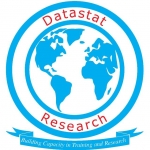|
|
Training Course on Climate Change and Water Resources Management
USD 1,100 |
Venue: Nairobi, Kenya
Water resource scarcity is exacerbated by growing pressures from increasing population, as well as industrial and farming needs. Conflicting demands require management. Societies’ ability to manage resource problems can be severely compromised by the increased frequency of extreme climatic events that are the consequence of climate change. Water resource management becomes a crucial element, especially in drought preparedness.
The aim of the course is to contribute to reducing the vulnerabilities of people and societies to shifts in hydro-meteorological trends, increased variability, and extreme events. This training course will focus on managing risk and dealing with uncertainty on climate change on water resources through various measures, including monitoring known hazards and risks, reducing the unknown risks through system research, and determining the range and type of relevant uncertainties. The course will also focus on the identification of adaptation measures with particular emphasis on droughts. It will also cover the important need to protect and restore ecosystems that provide critical land and water resources and services. The course will further discuss the need to close the gap between water supply and demand and to resolve water resources conflicts.
Duration: 5 Days
Target Audience
This training is meant for practitioners, decision and policy makers working in the development/environment/climate change adaptation sectors and specifically those in disaster management, volunteers and staff working with organizations tasked with human development. This includes individuals working with government institutions, NGOs the UN, intergovernmental bodies and the private sector. Students and young professionals who would like to increase their knowledge in the field are also welcome.
Objectives
This training is intended to increase the participants’ understanding of climate change and to explore possible solutions. There are actions that can be taken to prepare for a more variable climate, and we can make a case to our policymakers to prepare for change. The most important immediate action concerns the way we manage our water resources. Improving our management of water today will prepare us to adapt tomorrow. An improved understanding of our water resources will allow more efficient and flexible allocation systems and better investment in infrastructure, both to improve access to water and reduce risks from climate change.
Course Contents
Module 1
1. Introduction
- Understanding climate variability and climate change
- Effects of climate change on water resources
- Economic Impact of Climate Risks.
2. Drivers and impacts of climate change
- Understanding drivers and the physical science basis of climate change
- Understanding observed and projected impacts on the water cycle
- Observed changes and trends in the water cycle.
- Projections of future climate change impacts on the water cycle
- Impacts on ecological processes.
Module 2
1. Climate change and agriculture
- Impact of climate change on the agricultural systems.
- Impact of climate change on agriculture sector in drought-prone areas
- Factors responsible for increased vulnerability to climate variability and change.
- Impact of climate change on rural livelihoods.
2. Water Resources Management
- What is Integrated Water Resources Management
- Importance of IWRM for adaptation to climate change
- How can IWRM help address climate change?
- Implementing IWRM.
Module 3: Drought risk management in the context of climate change
- Integrated drought management
- Better scientific understanding for drought management.
- Improved knowledge base, with better access to information, knowledge products and services
- Drought early warning and information system
- Risk assessment and risk mapping
- Drought risk reduction and response
- Building society resilience through national drought policies
- Public awareness.
Module 4: Strategy development and planning for adaptation in IWRM in drought prone areas.
- Political commitment, high-level engagement, strong institutional setting and governance.
- Risk management through adaptation and mitigation
- National Water Program Strategy- Response to Climate Change
- Water program adaptation to climate change
- Water program education on climate change
- Dialogue on climate change adaptation for land and water management
- National water policies and integrated water resources management; water-related hazards management
- Challenges and opportunities of adaptation.
Module 5: Methods for social participation and conflict resolution
- Conflict issues in water resources management
- Power, social processes and water rights
- Approaches to conflict resolution
- Conflict resolution measures.
Methodology
The instructor led trainings are delivered using a blended learning approach and comprises of presentations, guided sessions of practical exercise, web-based tutorials, and group work. Our facilitators are seasoned industry experts with years of experience, working as professionals and trainers in these fields.
| Nairobi, Kenya | Apr 08 - 12 Apr, 2024 |
| USD 1,100.00 | |
Sammy Gathuru +254724527104
Related Courses
 Training Course on M&E, Data Management and Analysis for in Food Security and Nutrition Programmes
Training Course on M&E, Data Management and Analysis for in Food Security and Nutrition Programmes
5 days, 06 - 10 Jan, 2025
Datastat Research Center
 Training Course on Monitoring and Evaluation for Governance (Decentralization and Local Governance)
Training Course on Monitoring and Evaluation for Governance (Decentralization and Local Governance)
5 days, 06 - 10 Jan, 2025
Datastat Research Center
 Training Course on International Protocol and Diplomacy
Training Course on International Protocol and Diplomacy
5 days, 06 - 10 Jan, 2025
Datastat Research Center




